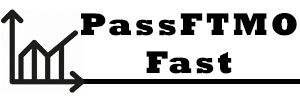Understanding the Inner Workings of Proprietary Trading Firms

Image Source: Unsplash
As a professional trader, I have always been fascinated by the inner workings of proprietary trading firms. These firms are known for their ability to generate significant profits by trading financial instruments with their own money. In this article, I will provide an in-depth understanding of how proprietary trading firms work, the strategies they use to generate profits, risk management practices, and the role of traders in these firms.
Introduction to Proprietary Trading Firms
Proprietary trading firms, also known as prop firms, are financial institutions that trade with their own capital. These firms employ traders who use the firm’s capital to trade financial instruments such as stocks, options, futures, and currencies. Prop firms are distinct from traditional buy-side and sell-side firms in that they are not involved in managing client assets or executing trades on behalf of clients.
Prop firms operate on a profit-sharing model, where traders receive a percentage of the profits they generate. This provides a strong incentive for traders to perform well and generate profits for the firm. Prop firms typically have a flat organizational structure, with traders working independently and making their own trading decisions.
The Basics of Prop Trading
Proprietary trading involves trading financial instruments with the firm’s own capital. The goal of prop trading is to generate profits for the firm by taking advantage of market inefficiencies and price discrepancies. Prop traders typically use a combination of technical and fundamental analysis to identify trading opportunities.
Prop firms use a variety of trading strategies to generate profits. These strategies range from high-frequency trading to long-term investments. The choice of strategy depends on the market conditions and the firm’s risk appetite. Prop firms also use advanced trading technologies and infrastructure to execute trades quickly and efficiently.
How Prop Firms Make Money
Prop firms make money by generating profits from their trading activities. Traders in prop firms are typically paid a percentage of the profits they generate, which provides a strong incentive to perform well. Prop firms also charge fees to traders for access to their trading infrastructure and technology.
Prop firms can generate profits in a variety of market conditions. In bullish markets, prop firms can profit from buying undervalued assets and holding them for the long term. In bearish markets, prop firms can profit from short-selling assets that are overvalued. Prop firms also use arbitrage strategies to profit from price discrepancies between different markets or financial instruments.
The Role of Traders in Prop Firms
Traders are the backbone of prop firms. They are responsible for executing trades and generating profits for the firm. Traders in prop firms are typically highly skilled and experienced, with a deep understanding of financial markets and trading strategies.
Traders in prop firms work independently, making their own trading decisions and taking full responsibility for their trading activities. Traders in prop firms are also required to adhere to the firm’s risk management policies and procedures.
Proprietary Trading Strategies
Proprietary trading firms use a variety of trading strategies to generate profits. These strategies range from high-frequency trading to long-term investments. The choice of strategy depends on the market conditions and the firm’s risk appetite.
High-frequency trading is a popular strategy used by prop firms. This strategy involves using advanced trading technologies to execute trades quickly and efficiently. High-frequency traders typically hold positions for a very short period of time, sometimes just a few seconds or minutes.
Long-term investments are another popular strategy used by prop firms. This strategy involves holding positions for an extended period of time, sometimes several years. Long-term investors typically use fundamental analysis to identify undervalued assets that are likely to appreciate in value over time.
Risk Management in Prop Trading
Risk management is a critical component of prop trading. Prop firms use a variety of risk management practices to ensure that their trading activities are profitable and sustainable. These practices include position sizing, stop-loss orders, and diversification.
Position sizing involves determining the appropriate size of a trading position based on the trader’s risk tolerance and the market conditions. Stop-loss orders are used to limit losses on a trade by automatically closing out the position if the price moves against the trader. Diversification involves spreading risk across multiple assets or markets to reduce the impact of any single loss.
Technology and Infrastructure in Prop Firms
Prop firms use advanced trading technologies and infrastructure to execute trades quickly and efficiently. These technologies include high-speed internet connections, trading algorithms, and automated trading systems.
Prop firms also use proprietary trading software that provides traders with real-time market data and analysis tools. This software allows traders to analyze market trends and identify trading opportunities quickly and accurately.
Regulations and Compliance in Prop Trading
Proprietary trading firms are subject to a variety of regulations and compliance requirements. These regulations are designed to protect investors and ensure that financial markets operate in a fair and transparent manner.
Prop firms must comply with regulations related to trading activities, risk management, and reporting. These regulations include the Dodd-Frank Act, which requires prop firms to register with the Commodity Futures Trading Commission (CFTC) and comply with reporting requirements.
Advantages and Disadvantages of Working for a Prop Firm
Working for a prop firm can be highly rewarding for traders who are able to generate profits. Traders in prop firms have access to advanced trading technologies and infrastructure, which can help them execute trades quickly and efficiently.
However, working for a prop firm can also be highly competitive and stressful. Traders in prop firms are required to take full responsibility for their trading activities and must adhere to strict risk management policies and procedures.
Conclusion
Proprietary trading firms are financial institutions that trade with their own capital. These firms employ highly skilled traders who use advanced trading technologies and infrastructure to generate profits.
Prop firms use a variety of trading strategies to generate profits, including high-frequency trading and long-term investments. Risk management is a critical component of prop trading, and prop firms use a variety of risk management practices to ensure that their trading activities are profitable and sustainable.
Working for a prop firm can be highly rewarding, but it can also be highly competitive and stressful. Traders in prop firms must be highly skilled and experienced, with a deep understanding of financial markets and trading strategies.
contact passftmofast.com to pass all your prop firm challenges
contact fnpropfirmEA for the best prop firm trading EA





